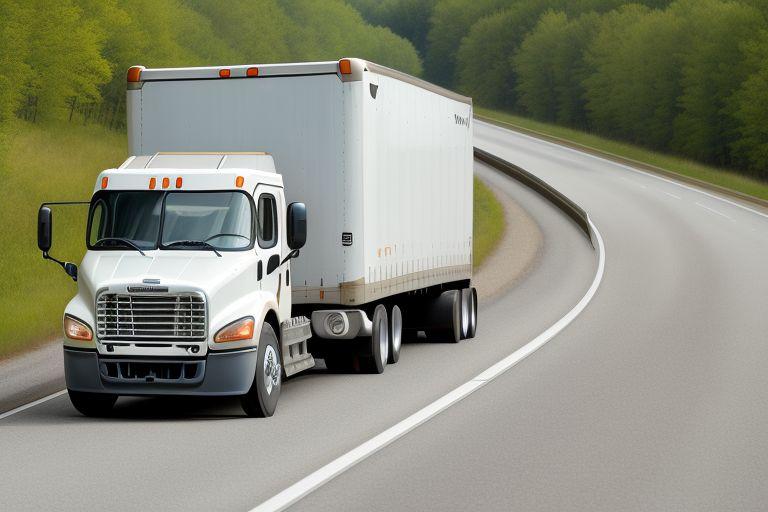
When planning to ship a car to or from Los Angeles, understanding the average transit time is crucial for a smooth and stress-free experience. Auto transport services vary in delivery schedules, but generally, the average transit time for vehicle transport to or from Los Angeles ranges from 1 to 7 days within California and up to 7 to 14 days for cross-country transportation, depending on the pickup and drop-off locations.
Los Angeles auto transport companies offer both enclosed transport for luxury cars and open car transport, which can affect both the car shipping cost and the transit time. The choice between expedited shipping and standard delivery options further influences how quickly your vehicle reaches its destination. It's essential to research auto transport brokers and the best car shipping companies to ensure reliable service and an affordable price.
Whether you need a car shipped quickly or at the most economical rate, understanding these variables will help you select the right car shipping company. Always consider the transportation process, including vehicle pickup and drop-off locations, to tailor the service to your needs. With the right planning and a reputable auto shipping company, your car transport to or from the bustling city of Los Angeles will be a smooth journey.
Factors Influencing Transit Times in Auto Transport
When shipping a vehicle, whether it’s a daily driver or a classic car, several factors can significantly influence the transit times of auto transport services. Understanding these factors will help you manage expectations and plan more effectively when using car shipping services in Los Angeles or any other region.
1. Distance and Geographical Location
The distance between the pickup and delivery locations is the most straightforward factor affecting the transit time. Longer distances naturally require more time, especially when shipping across state lines from cities like Los Angeles to places on the East Coast. Additionally, the geographical terrain, such as mountains or rural areas, can extend delivery times due to the challenging routes for truck drivers.
2. Type of Transport
Choosing between open car transport and enclosed transport can impact transit times. Open transport, which is more common and affordable, often has faster availability due to the higher number of open carriers on the road. Enclosed transport, preferred for luxury cars and classic cars due to its protection from weather and road conditions, might take longer to schedule as fewer specialized trucks are available.
3. Urban Congestion and Traffic
Major cities, especially a bustling hub like Los Angeles, face significant traffic, which can delay pickup and delivery times for vehicle transport. Los Angeles auto transport logistics are particularly complex due to the dense urban environment, impacting how quickly an auto shipping company can navigate through the city.
4. Seasonal Variations
The time of year plays a crucial role in the auto shipping industry. Demand peaks during the summer and before the winter holidays, which can extend transit times due to higher volumes of car shipments. Conversely, winter poses its own challenges with slower transit times in northern routes affected by poor weather conditions.
5. Service Type
The choice between standard and expedited shipping significantly affects transit time. Expedited shipping services, offered by many auto transport companies, prioritize your vehicle shipment, reducing the wait time significantly at a higher cost. On the other hand, standard shipping might take longer but at a more affordable price.
6. Operational Factors
Several operational factors within the transportation process also play a role. The availability of truck drivers, the efficiency of the auto transport company, and the coordination of vehicle pickup and drop-off locations can all influence the speed of delivery. Companies must manage these elements skillfully to maintain prompt delivery schedules.
7. Vehicle Condition and Preparation
The condition of the car being shipped can affect transit times. Operational vehicles can be driven on and off the transporter, reducing loading times. In contrast, non-operational vehicles require additional equipment and labor, potentially prolonging the process. Additionally, how well the car is prepared for transport—ensuring it's clean, only a quarter full of gas, and with secured, loose items—can expedite the pickup and loading phase.
8. Regulatory Compliance and Safety Checks
Auto transport brokers and car shipping companies must adhere to numerous regulations, including hours of service for drivers, which mandate how long a driver can operate without rest. Compliance with these safety measures can influence scheduling and, subsequently, the transit time.
9. Customization of Shipping Services
Custom requests such as door-to-door delivery versus terminal-to-terminal, or additional protection for vehicle delivery, can extend the time needed to arrange specific accommodations. These services, while increasing convenience, require more meticulous planning and coordination.
Comparative Analysis of Transit Times from Key U.S. Cities to Los Angeles

When considering auto transport services to Los Angeles from various major U.S. cities, several factors impact the transit times. This comparative analysis will help you understand how geography, service type, and other logistics influence the duration of car shipping services to this major hub.
From New York City to Los Angeles
- Average Transit Time: Typically 7 to 10 days.
- Factors Influencing Transit: The cross-country route is impacted by weather conditions, particularly in winter, and high traffic areas both in NYC and Los Angeles.
- Service Types Available: Both open car transport and enclosed transport for luxury cars and classic cars.
- Cost Variability: Expensive due to the distance and options for expedited shipping.
From Chicago to Los Angeles
- Average Transit Time: Usually around 5 to 7 days.
- Key Influences: Midwestern weather, particularly snow and rain, can delay trips; less urban congestion than from NYC, making for a slightly quicker trip.
- Service Options: Standard and expedited shipping available, with open transport being more economical.
- Pricing Factors: Moderate prices influenced by less demand compared to coastal routes.
From Houston to Los Angeles
- Average Transit Time: Around 3 to 5 days.
- Influences on Timing: Less traffic congestion compared to eastern routes and generally favorable weather conditions.
- Transport Types: Both enclosed and open transport options are widely available.
- Cost Considerations: Costs are generally lower due to the shorter distance and high competition among car shipping companies.
From San Francisco to Los Angeles
- Average Transit Time: Typically 1 to 3 days, the quickest among major routes.
- Transit Influences: Short distance and major highway routes available; minor weather issues.
- Available Services: Both standard vehicle transport and expedited services for urgent car shipments.
- Price Range: More affordable due to proximity and frequent transport runs.
Key Points to Consider Across All Routes
- Auto Transport Companies: Choosing reputable auto transport services is crucial. Researching auto transport and selecting the best car shipping companies ensures reliability and service quality.
- Vehicle Pickup and Delivery Locations: Door-to-door service may add convenience but can extend transit times due to local traffic and navigation in urban areas.
- Type of Vehicles: Shipping costs and times may vary if shipping luxury cars or classic cars due to the need for enclosed transport to protect against road and weather conditions.
- Transportation Process: The efficiency of the shipping company, including the professionalism and experience of the truck driver, significantly affects delivery times.
- Cost Efficiency: While expedited shipping is available for most routes, it comes at a higher car shipping cost. Balancing speed and affordability is key for most customers.
Tips to Ensure Efficient Vehicle Shipping
Shipping your vehicle can be a stress-free process if you follow these essential tips. Whether you're moving a standard sedan, a luxury car, or a classic car, understanding how to navigate the auto transport industry can save you time and money. Here’s how you can ensure efficient car shipping, particularly when dealing with routes to or from Los Angeles or other major hubs.
Choose the Right Auto Transport Company
Selecting a reputable auto transport service is crucial. Research various car shipping companies to assess their reliability, service quality, and the types of shipping they offer, such as enclosed transport for high-value vehicles and open car transport for more cost-effective solutions. Looking for the best car shipping companies involves checking customer reviews and verifying credentials to ensure your vehicle is in safe hands.
Prepare Your Vehicle for Transport
Efficient vehicle shipping begins with proper preparation. Ensure your car is in good running condition (unless it's being shipped as non-operable), clean, and has only a quarter tank of fuel, which is enough for loading and unloading but not so much that it adds extra weight. Remove personal items and any custom accessories that can be damaged or lost during transport.
Understand the Pickup and Delivery Locations
Be aware of the logistics involved in your vehicle pickup and delivery locations. Some areas may be hard to reach directly with a large transport truck due to local restrictions or narrow roads. In such cases, choosing a more accessible location, even if it's slightly farther away, can reduce the delivery time and cost.
Plan According to Weather and Road Conditions
Weather conditions can significantly impact the transportation process, especially for routes involving harsh climates. When shipping to or from places like Los Angeles, consider the seasonal variations that might affect transit times. Discuss with your auto shipping company how adverse weather might impact your shipping schedule and what measures they take to protect vehicles.
Opt for the Right Type of Transport
Decide between open transport and enclosed transport based on your vehicle's needs. Open transport is more affordable and has more availability but doesn’t offer protection from the elements like enclosed transport. Enclosed transport is recommended for high-end, luxury, or classic cars that require extra protection.
Consider Expedited Shipping If Time-Sensitive
If you need your car shipped quickly, inquire about expedited shipping options. While this service comes at a higher car shipping cost, it guarantees that your vehicle arrives at its destination within a predetermined timeframe, bypassing potential delays typical of standard shipping.
Verify Insurance and Licensing
Ensure that the car shipping company has valid licensing and insurance. This protects you in the event of an accident or damage during transport. A reliable auto transport broker can provide all necessary documentation upon request.
Communicate Effectively
Stay in contact with the truck driver or the shipping company to get updates on the transport status. Effective communication helps in addressing any concerns immediately and coordinating last-minute changes in the shipping process.
By following these tips, you can enhance the efficiency of the car shipping process and ensure that your vehicle arrives safely and on time, whether it’s being transported across the state or across the country.

Conclusion
Efficient vehicle shipping hinges on choosing a reputable company, preparing your car properly, and understanding the logistics involved. By following these essential tips, you ensure a smooth and stress-free transport experience.
Ready to ship your vehicle with confidence? Contact A1 Auto Transport today and experience reliable, efficient service tailored to meet your unique needs. Trust us to deliver your vehicle safely and on time. Call or visit our website to get started!






 Share on Facebook
Share on Facebook Share on LinkedIn
Share on LinkedIn Share on Twitter
Share on Twitter




 Google
Google  Instagram
Instagram  Trustpilot
Trustpilot 



